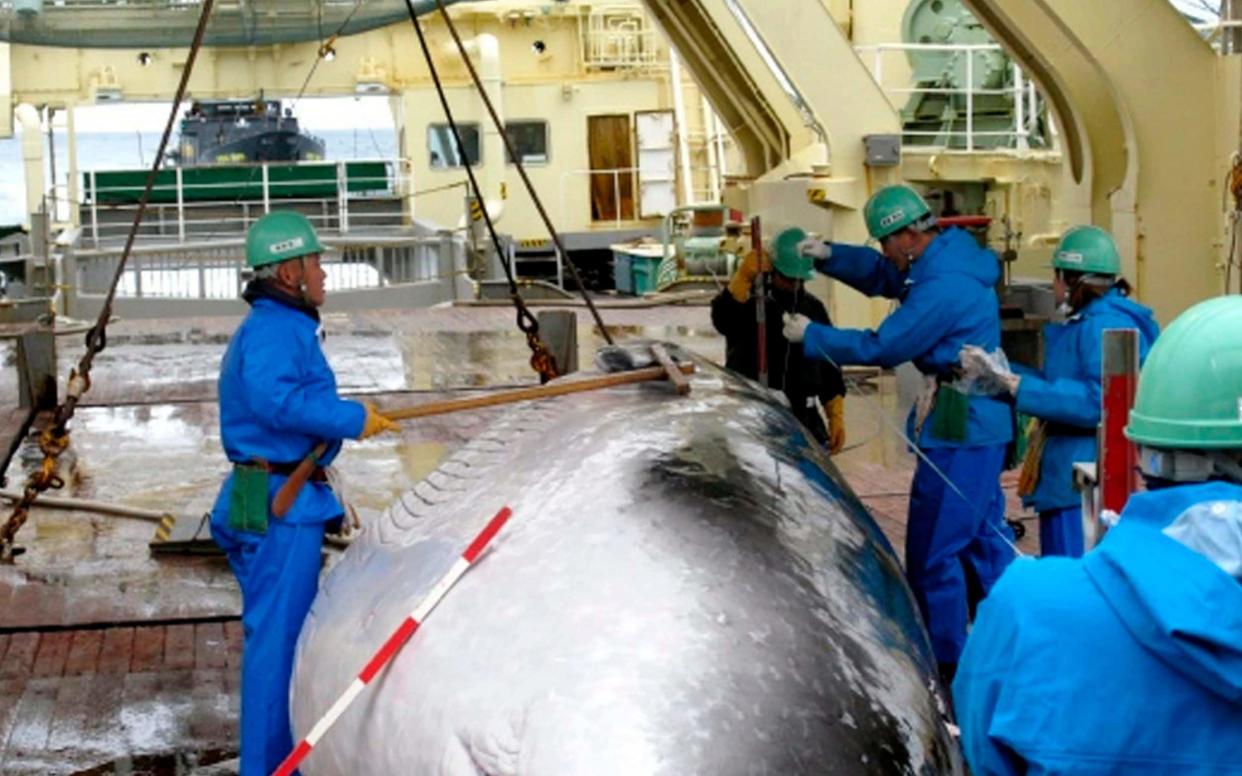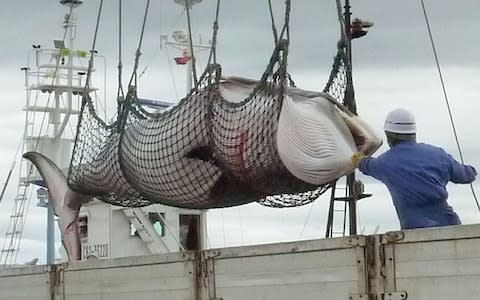Japan proposes resumption of commercial whaling

Governments and animal rights’ organisations around the world have condemned a proposal put forward by Japan at the meeting of the International Whaling Commission to resume commercial hunting of whales.
Tokyo’s motion to lift a global moratorium on whaling that was adopted by the IWC in 1982 was introduced at the commission’s biannual meeting in the Brazilian city of Florianopolis on Monday.
Japan is chairing this year’s conference and its delegation is headed by Joji Morishita, who once described Minke whales as “the cockroaches of the ocean”.
“Science is clear: there are certain species of whales whose population is healthy enough to be harvested sustainably”, the submission reads.
“Japan proposes to establish a committee dedicated to sustainable whaling (including commercial whaling and aboriginal subsistence whaling)”.

Tokyo is also seeking to change how the IWC votes and wants the commission to reach agreements based on a simple majority vote of member nations, instead of the three-quarters majority that is required at present.
Japan has accused the organisation of being “intolerant” of different opinions on whaling and claims that it is has descended into a “forum for confrontation”.
Since the moratorium was introduced, Japanese whalers have used a loophole that permits “scientific whaling” to slaughter thousands of the creatures in the Pacific Ocean.
You don’t need to be a vet to know that firing at a whale with a harpoon... is going to cause appalling and completely unacceptable suffering
Claire Bass, Humane Society International
In its most recent hunt, the fleet met a quota set by Tokyo of 333 Minke whales, the meat from which was sold in supermarkets and to restaurants. Critics say the “scientific” hunt is thinly disguised commercial whaling.
“Japan could not possibly have advanced a more regressive and reckless proposition, imperiling both the conservation and welfare of whales”, said Claire Bass, executive director of the British branch of Humane Society International.
“You don’t need to be a veterinarian to know that firing at a whale with a harpoon that explodes inside its body, in many cases not killing it immediately, is going to cause appalling and completely unacceptable suffering”, she said.
“There is no humane way to kill whales at sea, and that fact alone should be enough for countries to reject Japan’s proposal”.
Japan has declined to provide data on how long it takes whales to die after they have been harpooned, although analysis of video footage of Japanese whalers’ operations suggests it could be at least 33 minutes.
Julie Bishop, the Australian foreign minister, and Josh Frydenberg, Canberra’s environment minister, released a statement calling on like-minded nations to resist Japan’s proposals.
“Australia remains steadfastly opposed to all forms of commercial and so-called ‘scientific’ whaling and continues to be a leader in seeking to strengthen the International Whaling Commission to protect whales.
“We strongly support the 30-year global moratorium on commercial whaling and will vehemently oppose any attempts to undermine the processes that support it, including through changed voting regimes or the establishment of catch-limits for commercial whaling”, the statement added.
The meeting is scheduled to end on Friday.

